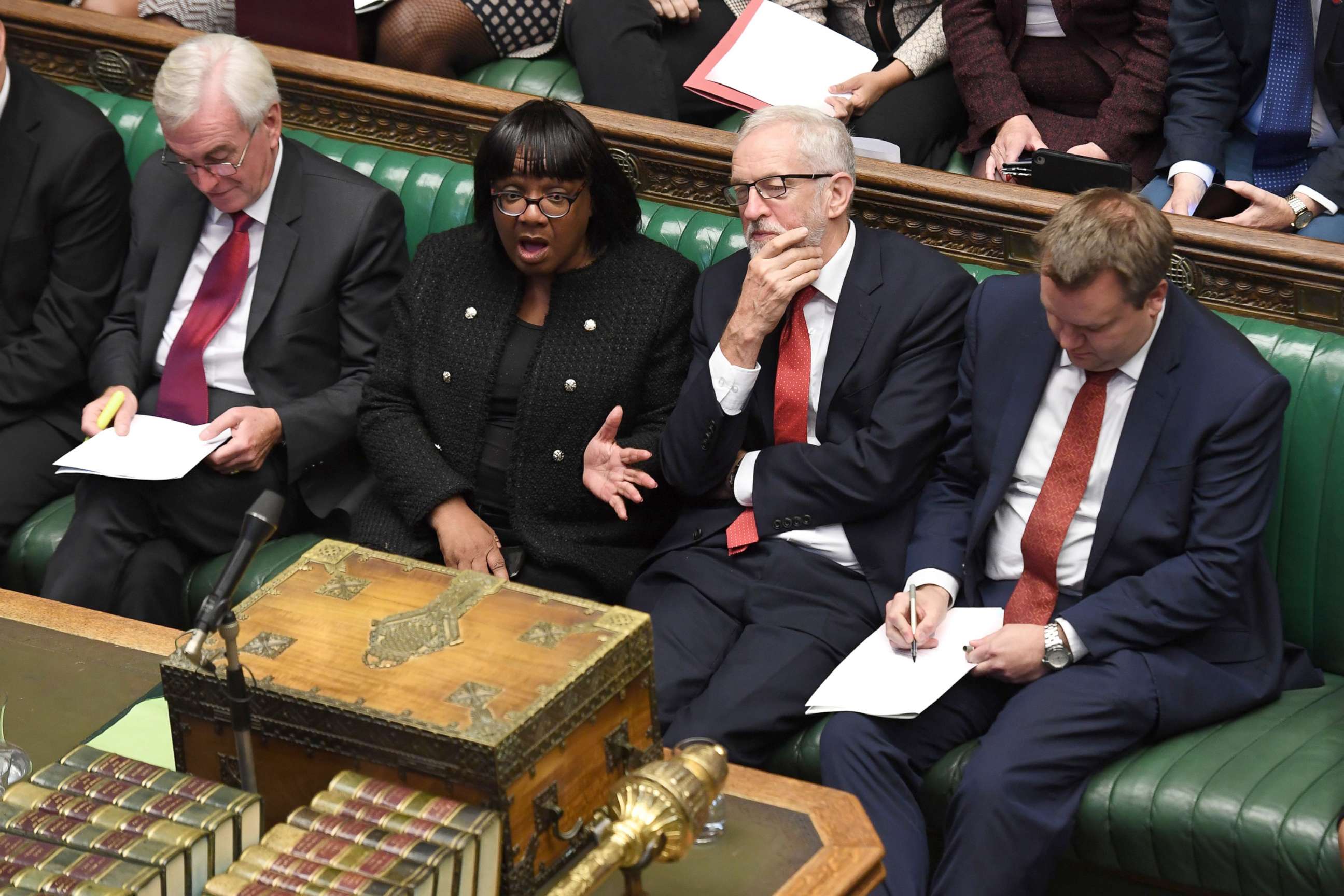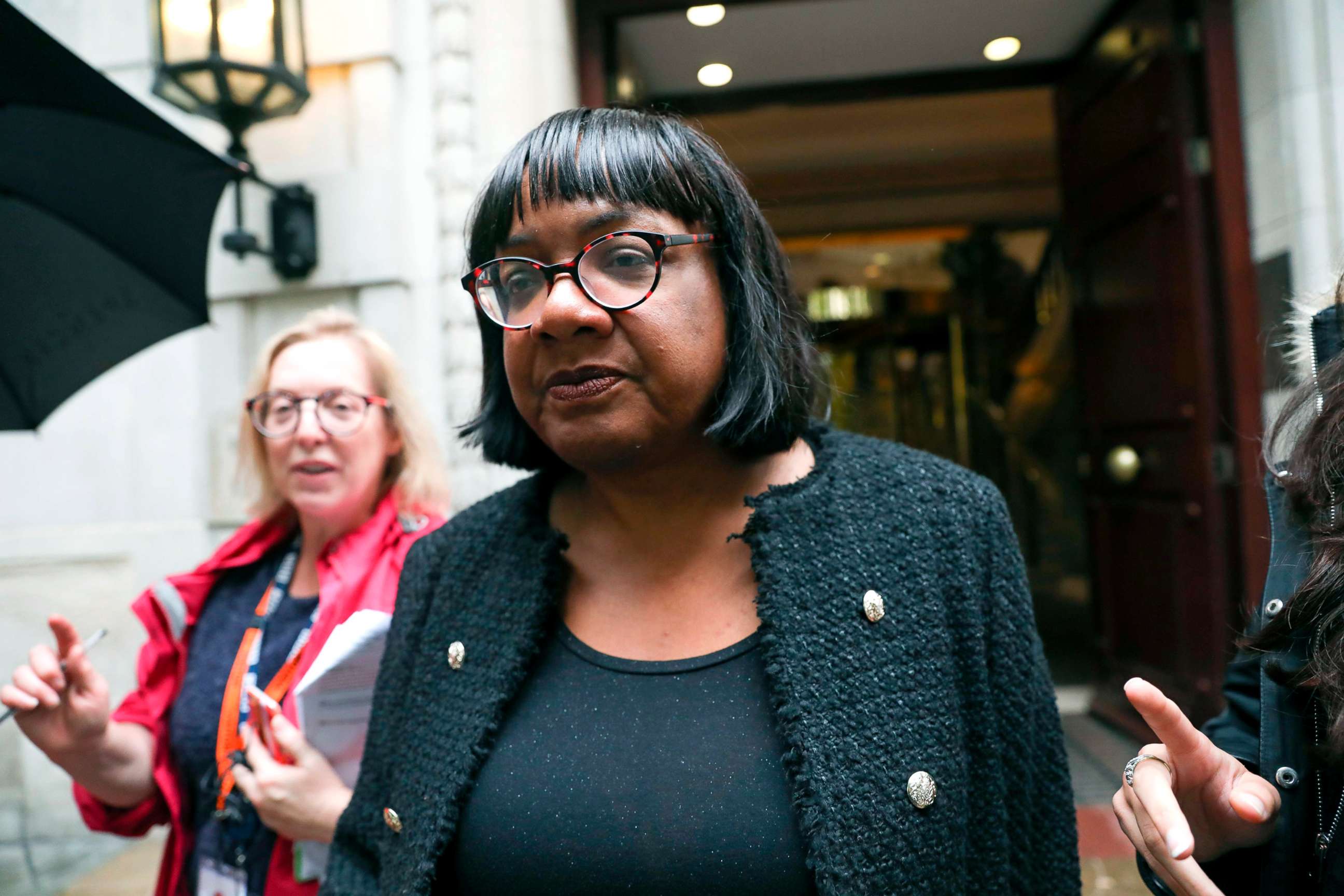Diane Abbott becomes first black politician to represent party at PMQs
The historic moment comes at the start of the U.K.'s Black History Month.
LONDON -- The British politician Diane Abbott made history Wednesday by becoming the first black politician to lead their party at the weekly clash that takes place in the House of Commons between the government and the opposition party of the day.
Abbott, 66, stood in for the current leader of the Labour Party, Jeremy Corbyn, during Prime Minister's Questions, a weekly debate in which other political parties are able to scrutinize the government in charge, on Wednesday.
Corbyn announced Tuesday on Twitter that she would be standing in, making the point that October was also the U.K.'s Black History Month.

In response, Abbott said she was "looking forward" to representing her party on the historic occasion.
Abbott faced off against Conservative lawmaker Dominic Raab, the current Secretary of State for Foreign Affairs, as Prime Minister Boris Johnson is currently away at the Conservative Party Conference in Manchester. She questioned Raab on the government's record on women's issues and Brexit.

But I learned a long time ago that you just have to get on with it; you can't let racism hold you back from what you want to achieve.
It is not the first time the member of Parliament has been a trailblazer in British politics. In 1987, she become the first black woman to be elected to the House of Commons, and she remains one of the longest-serving politicians in Parliament to this day. When she was elected, only 41 out of 650 MPs were female.
In an interview with The Guardian newspaper in 2012 about her early years in Parliament, Abbott said she was unaware she was making history when she was elected.
"At the time that I was elected, I didn't have this sense of making history as a black woman," she said. "Obviously it was an extraordinary moment for me personally, but it's only now that I recognize how important it was. The biggest challenge I faced was racism. People simply didn't think I could do it – that I could be elected as a black woman. But I learned a long time ago that you just have to get on with it; you can't let racism hold you back from what you want to achieve."




